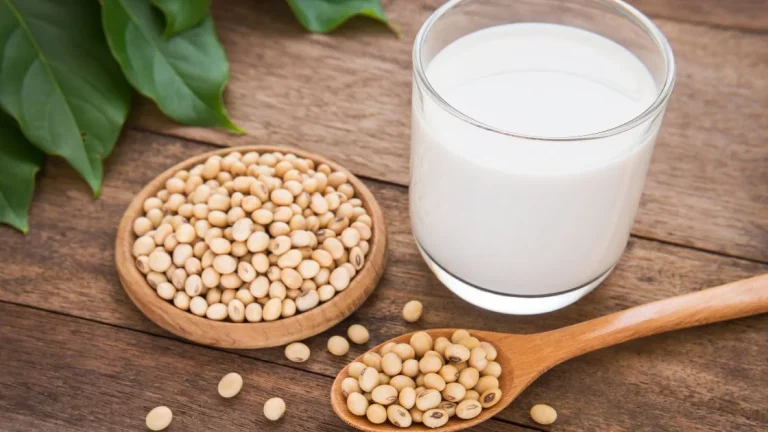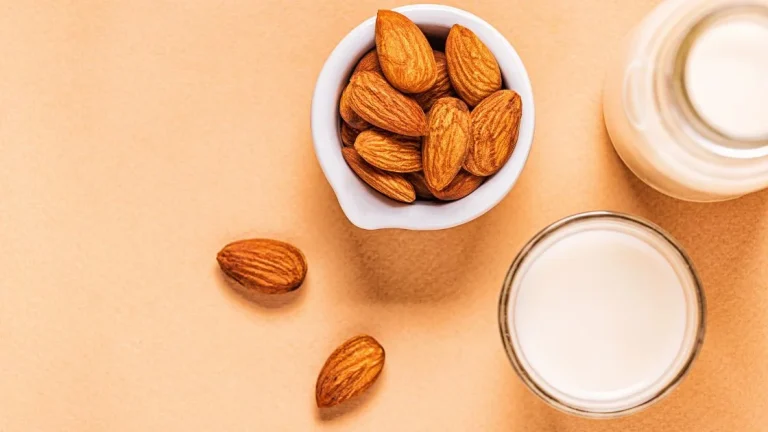- It offers a wide variety of tasty and nutritious options
- It can reduce the risk of cardiovascular disease, type 2 diabetes, and cancer
- Choosing a vegetarian diet is environmentally friendly and reduces food waste
- It can lower blood pressure and promote weight management
- It supports bone health and improves digestion
Experiencing the benefits of vegetarian food is entirely possible without sacrificing a tasty yet nutritious diet.
While this vegetarian or vegan diet requires us to give up meat products (except a flexitarian alternative), it opens up a whole new world of diverse food to take care of your health and the environment.
Are you considering a vegetarian diet but unsure if it’s right for you? What happens when you don’t eat meat?
Fear not because by reading this blog, you’ll learn all there is to know about vegetarian food.
From what it is and what it isn’t to the benefits of adopting a vegetarian diet, you’ll be well on your way to making the switch!
It is a diet that promises flavor and diversity.
What are the Benefits of Vegetarian Food?
Vegetarianism isn’t the new kid on the block – millions have already switched to meatless or meat-controlled diets.
Yet, despite its popularity, there is still some stigma and myths surrounding the lifestyle.
So, let’s take a look at what it means.
Vegetarian food is food that doesn’t contain any meat.
It is not to be confused with a vegan diet, which also completely excludes the use of any animal products and dairy products.
Instead, a vegetarian diet may include more foods like fruits, vegetables, whole grains, legumes, and beans to get all the necessary nutrients.

There is much more to the lifestyle than excluding meat – it is a way of life.
Meal options are not as limited as one might first think. It includes a variety of dishes, including salads, pasta, baked goods, pizza, you name it!
Vegetarians can access various alternative proteins and nutrients derived from plant foods.
Additionally, it allows for ethical and sustainable animal farming practices.
How to Start a Diet Based on Vegetarian Food?
As we’ve seen, this diet and lifestyle choice is growing in popularity.
That said, switching over to a new diet plan is always difficult, no matter how tasty the meals might be.
If you have been enjoying your animal proteins, the switch might be difficult initially, but we won’t lie.
However, with some sacrifice and perseverance, you can enjoy an array of health benefits and do your bit to help the environment.
Before you take the plunge, you should be aware that there are different types of vegetarian diets.
That’s right, eating vegetarian can be flexible, depending on your preferences.
If nonvegetarians are not ready to make a full commitment, they can explore a flexitarian diet that includes poultry and fish, or go pescatarian.
Pescatarians allow themselves to eat fish as their primary source of omega-3 fatty acids.
When you are ready, swap out those animal-based foods for some healthy greens, fruits, and grains – it’s time to let your taste buds enjoy all this new way of eating.
Add some flavor with spices and herbs, or try making something new with your favorite meal prep ingredients.
If you’re feeling creative, even whip up a couple of vegan/vegetarian treats. Experimentation is the key to really enjoying this new dietary choice! Why not consider it and make a change for the good?
What are the health benefits of a vegetarian diet?
Vegetarianism has many health benefits, and vegetarian food is packed with nutrients that can help improve overall health.
Let’s take a look at only some of the benefits a more plant-orientated diet has to offer;
1. Reduced Risk of Cardiovascular Disease
Incorporating mostly fruits and vegetables into your meals is a health-conscious diet that improves your heart health and lowers the risk of heart attacks.
This diet has low cholesterol and saturated fat levels, which can lower your risk of developing heart disease, stroke, diabetes, and some types of cancer.

Additionally, it helps regulate blood pressure and reduce the risk of obesity.
This diet also provides plenty of essential vitamins and minerals for a healthy body – such as vitamin B12, vitamin C, calcium, zinc, and potassium.
2. Help the Environment
Vegetarianism, lacto-ovo vegetarianism, and veganism are some of the most environmentally friendly choices you can make for obvious reasons.
It is cruelty-free, and it has a lower environmental impact than a nonvegetarian diet, and it’s also healthier for your body.
It also helps to reduce food waste and requires fewer resources to sustain.
3. Can Combat Type 2 Diabetes
Type 2 diabetes is becoming a major health problem.
Many people are aware of this disease but don’t know how to tackle it.
Going vegetarian can be a good way of preventing or controlling the disease.
Studies show that a vegetarian diet can help prevent type 2 diabetes and also help patients living with the disease reduce their diabetes-related complications by improving their insulin sensitivity, reducing weight, and keeping them mentally fit.
If you’re looking for ways to improve your overall health – and want to avoid diseases such as type 2 diabetes – then a vegetarian lifestyle might just be what you’re looking for!
4. Reduced Cancer Risk
A vegetarian diet is linked to a lower risk of developing cancer.
In addition, it is rich in nutrients and antioxidants that help protect against heart disease and other diseases.
Vegetarians also tend to have a lower BMI than meat-eaters – which may be due to the higher levels of fiber in their diets.
5. Lowers Blood Pressure
A meat-controlled diet has been shown to lower blood pressure in a significant way.
It is also beneficial for cholesterol levels and other heart-related diseases.
Overall, vegetarianism provides plenty of nutrients essential for good health – iron, zinc, and all the good stuff.

In fact, some studies have even suggested that plant-based diets may be more effective than animal-based ones at preventing heart disease!
6. Reduced Risk of Food-Borne Illness
Food-borne illness is a big problem (mad cow disease, anyone?).
A plant-based diet can help reduce your risk of contracting any of these nasties that can make you seriously ill.
High cholesterol levels, heart disease, diabetes, and other health problems have all been linked to a diet low in meat.
7. Manage Weight
Weight loss can be tricky, but it’s doable with the right approach.
Following a vegetarian diet will improve your health in countless ways and reduce your intake of calories, which is key for weight management.
And as we’ve mentioned, you’ll get plenty of other vital nutrients essential for overall health.
There are many vegetarian foods out there – so don’t be afraid to experiment! Just remember: moderation is key!
8. Promotes Bone Health
Vegetarians have long been known to enjoy healthy bones, thanks to the high levels of fiber and calcium in their diet.
Plant-based foods are rich in vitamin D, essential for calcium absorption.
As such, vegetarians maintain healthy bones much better than meat-eaters.
So a vegetarian diet promotes good health overall; it’s an excellent way to reduce your risk of developing osteoporosis or any other type of disease affecting the bones!
9. Improves Digestion
Fiber is our friend. A diet high in fiber helps move food through the digestive system more quickly and easily, leading to a cleaner colon.
And since vegetarian food is also low in calories and fat, they’re an excellent option for those looking to lose or maintain their ideal weight.

10. Best Cost-Benefit
Going vegetarian is not only good for the environment – it’s also easier on your wallet than meat-based diets! We all know the price of a hearty steak – on our wallets and health.
Should You Become a Vegetarian?
Numerous health benefits aside, choosing this way of life is more humane, and it can also help to reduce your environmental impact.
Following a vegan diet also positively affects the food industry – factory farming is generally cruel and incredibly resource-intensive.
In fact, a vegetarian diet is the healthiest option for humans, as plant-based diets contain less animal-based cholesterol and heart-healthy plant-based protein.
That said, we can’t make that choice for you. We are not here to preach one lifestyle choice over another – we merely highlight the benefits of a meat-free or meat-controlled diet.
Vegetarian or vegan is a great starting point if you’re looking to improve your health and the environment.
As with any drastic lifestyle change, it is worth mentioning to first consult with your healthcare professional when in doubt if a vegetarian diet is right for you.









